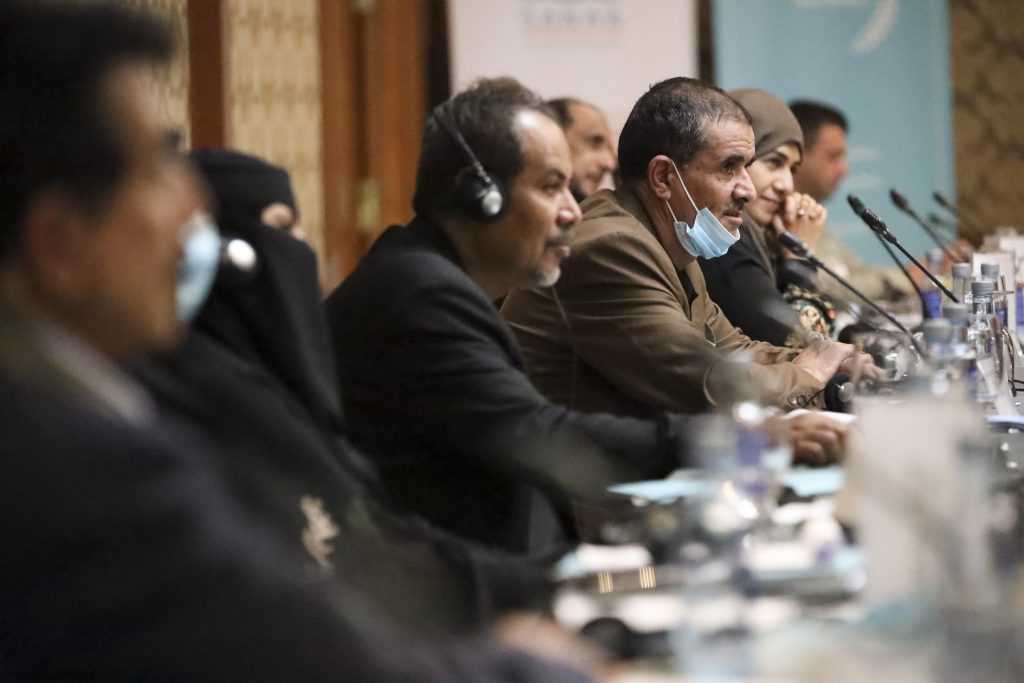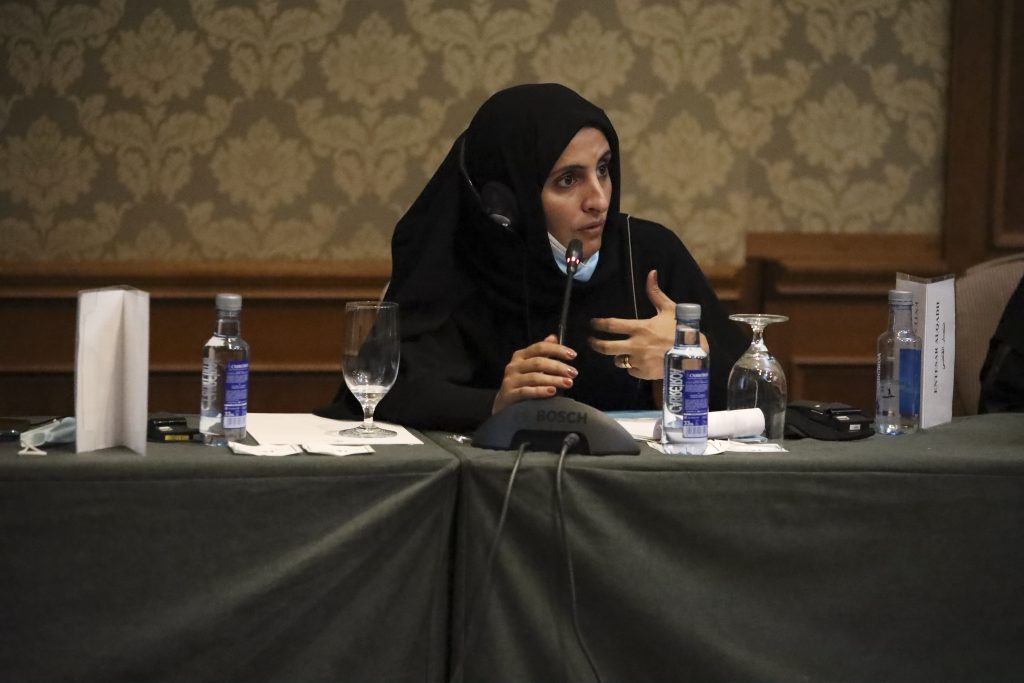Yemeni tribes explore their potential in local and national peacemaking
Tribal leaders and influential women from tribal communities from across Yemen took part in a workshop in September to discuss how to enhance peacemaking efforts among the country’s tribes. The event was part of an EU-supported project led by CMI and Sana’a Center for Strategic Studies.

CMI and Sana’a Center for Strategic Studies arranged the workshop for tribal leaders and influential women from tribal communities.
The ongoing conflict in Yemen calls for common and inclusive peacemaking efforts due to the multiplicity of actors and underlying causes of the conflict. The war has been raging in the country for nearly seven years and the situation has become increasingly complex over time. Any sustainable resolution of the conflict needs the participation of all the relevant actors.
Reconciliation is a core essence of tribal tradition, and historically tribal leaders have had a significant role in de-escalating and resolving local conflicts. During the war, these efforts and tribal structures themselves have become fragmented. It has become apparent, that there is a strong need for in-depth discourse on how to capitalise the ongoing peacemaking efforts among tribes, and how to mobilise tribes more generally towards peace and stability in Yemen.
CMI and Sana’a Center for Strategic Studies arranged the workshop for tribal leaders and influential women from tribal communities, following a consultative phase among tribal leaders inside and outside Yemen, which included a workshop in January. The January event identified options for tribal engagement in local and national conflict de-escalation and called for further exploration of the role of the tribes for peace in Yemen.
“As the war enters its seventh year, peace has become more urgent than ever,” stressed the EU Charge d’affaires to Yemen, Marion Lalisse as she opened the first day of the workshop.

Workshop participant Entesar Al-Qadh of the Marib Governorate.
Local efforts complement the official peace process
During the two-day workshop, participants discussed how to effectively strengthen local initiatives to attain durable peace and stability in Yemen.
“There are numerous places where the public gathers – places the state can’t possibly reach. This is where the tribes come in,” explained workshop participant sheikh Naji Al-Zaidi.
Tribes have a long history of solving local disputes and mediating prisoner exchanges in Yemen, and such experience creates a basis for more ambitious peace efforts. The workshop discussed the need for reactivation of tribal norms as a way to enhance solidarity between the tribes.
The tribal leaders and women also discussed the official UN-led peace process and how civil society, including Yemen’s tribes, can support it. Tribal leaders called for closer cooperation with the UN, emphasising the importance of local peace efforts and their complementary role to the official process.
“It is crucial for us to understand your efforts so that we can support them,” Security Sector Reform Officer Edward Jackson from Office of the Special Envoy of the Secretary-General for Yemen said to the participants. Support from the international community is needed to put pressure on conflict parties to end the war. But lasting peace needs the commitment of all Yemenis.
“Peace does not come from the outside. It only comes from inside, when Yemenis start to peacefully coexist”, said Entesar Al-Qadh of the Marib Governorate.
The workshop was organised and facilitated by CMI and Sana’a Center for Strategic Studies, an independent Yemeni think-tank focusing on Yemen and the surrounding region. The tribal initiative is part of an EU-funded project that aims to support an inclusive peace process to reach a negotiated solution to the conflict in Yemen.

CMI’s work in Yemen is funded by the European Union.